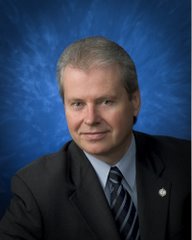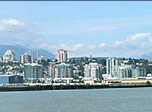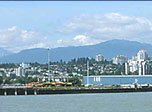Viewpoint: United Nations-aligned laws create
two-tiered society
'The public must understand the principle that
legal capacity creates its own unending demand'
Feb. 11, 2026
Powell River-Sunshine Coast MLA
Randene Neill, who is also BC’s minister of water, land and resource
stewardship, made no additional explanations or assuaged public anxiety with
her answers to Powell River Westview Ratepayers Association on Feb 6.
Neill was invited to respond to
written pre-submitted questions about the Declaration on the Rights of
Indigenous Peoples Act. BC premier David Eby has said the government will be
amending DRIPA before the summer break of 2026 to scale back the power courts
have in shaping reconciliation efforts. Recent court decisions have created
confusion about what the act means in practice. Eby said his government is also
planning to appeal the court decision to defend private property rights, but no
documents have been filed.
However, Eby does not admit his
legislation created all the legal problems. He won’t admit DRIPA is not
fixable, and that the legislation cannot pretend to be one thing (social
reconciliation -peace -certainty -trust) while being another —a big highway to
unending demands. The NDP is the only government in the world that has made
such enabling legislation at the behest of the United Nations Declaration on
the Rights of Indigenous Peoples.
Meanwhile, BC Conservatives want
to repeal DRIPA, claiming the government has continued to cause uncertainty by
signing land-use agreements with First Nations without widespread public input,
consultation and social approval. The NDP claims settlement deals are the
business of government to government, and that the public is only peripherally
relevant to the process.
DRIPA is dividing British
Columbians, say BC Conservatives, and people are being left to wonder whether
land access, development rights and long-standing property law can change
overnight, without significant public debate.
Eby says Indigenous claims to
land title predates the DRIPA legislation and First Nations title was not
invented by DRIPA. He said it is grounded in Canada's constitution and
repealing DRIPA would remove the road map they have with First Nations for how to
resolve matters outside of court. It would bring more conflicts in the court
and slow projects down. Repealing DRIPA would return us to a darker,
conflict-oriented time and set us back a generation in our relationship with
First Nations, Eby said.
However, in my view, under the
guise of “reconciliation,” the province is being reshaped—not by democratic
consensus, but by ideology embedded into law.
For example, the Cowichan Ruling
of 2025 was a decision legitimizing aboriginal title over private property
homeowners in Richmond, based on questionable hearsay evidence from 150 years
ago. This ruling, influenced by NDP provincial government “practice directives”
prioritizing Indigenous reconciliation claims, discards the established rule of
law and creates unequal treatment based on race. It is certain that every legal
loophole and advantage will be always exploited to the sole advantage of the
claimants.
Residents of Okanagan Falls, a
community that is 97 per cent non-Indigenous, were blindsided to learn their
efforts to incorporate and become a city have now subjected them to DRIPA. The
neighbouring Osoyoos First Nation has claimed it wants Okanagan Falls’ name,
and potentially street names, changed to their preference. They also want crown
land removed from proposed city boundaries.
The public must understand the
principle that legal capacity creates its own unending demand. United
Nations-aligned laws create a two-tiered society, where a privileged group’s
legal authority takes precedence over the interests of the majority. That’s not
reconciliation—it is one-way capitulation, including implied social guilt.
At the ratepayers meeting, Neill said she would vote for amendment and not the repeal of DRIPA. The Conservatives alternative is to completely repeal and replace with more traditional negotiation processes.








